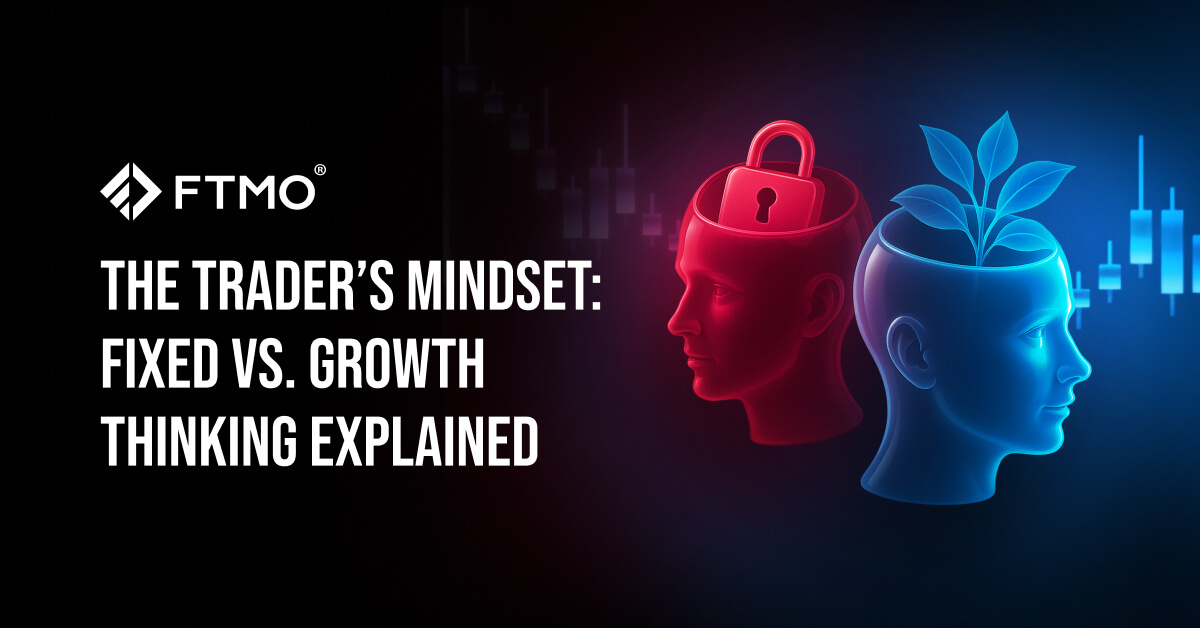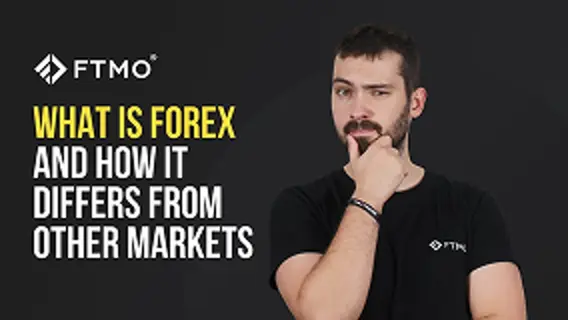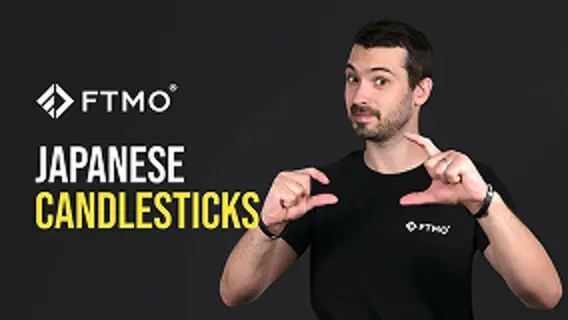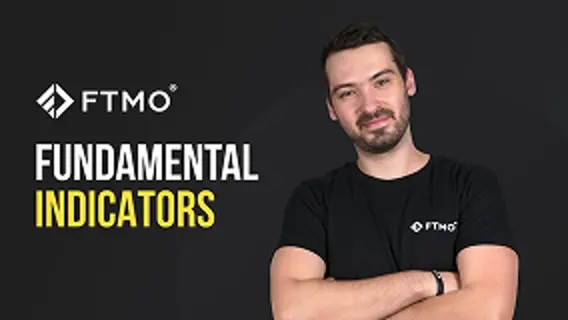
The Trader’s Mindset: Fixed vs. Growth Thinking Explained
One of the most overlooked skills in trading has nothing to do with indicators, systems, or setups. You can have the best strategy in the world, but if your mindset collapses during setbacks, you’ll struggle to stay consistent.
That’s why understanding the difference between a fixed mindset and a growth mindset can make or break your long-term development as a trader. So, let’s explore the power of mindset through the lens of Carol Dweck’s Growth and Fixed mindset framework.
Mindset shapes how you react to challenges, mistakes, and pressure. It influences how quickly you adapt to market conditions, how you handle losses, and how consistently you execute your plan.
In trading, a fixed mindset keeps you stuck. A growth mindset propels you forward.
Let’s break it down.
Fixed mindset
A fixed mindset is the belief that your intelligence, skills, and talents are static. People with a fixed mindset believe they are either “good” or “bad” at something, and failure is proof they are lacking. A fixed mindset creates an urgency to prove yourself over and over again. They constantly seek validation of their intelligence and skills, turning each trade into a personal test.
Fixed-minded traders:
- • Avoid new strategies out of fear of failure.
- • View every losing trade as personal incompetence.
- • Quit after a drawdown, convinced that “maybe I just can’t do this.”
Traders with a fixed mindset focus excessively on being “right,” which often leads to revenge trading, overtrading, and emotional decision-making. They fear looking bad more than they focus on getting better.
Growth mindset
A growth mindset, in contrast, is the belief that skills and success are developed through consistent effort, learning, and reflection. Traders with this mindset see challenges as opportunities to grow, and failures as necessary steps on the path to mastery.
Growth-minded traders:
- • See a losing streak as an opportunity to improve your edge.
- • View drawdowns as data, not personal failure.
- • Stay curious after mistakes, asking “What can I improve?”
- • Value the process — following the trading plan, executing discipline — over the short-term results.
These traders don’t rely on hope or talent. They rely on preparation, adaptation, and continuous improvement.
According to psychologist Carol Dweck, we all operate on a spectrum between two mental frameworks: a fixed mindset and a growth mindset. These mindsets influence how we handle setbacks, take feedback, and improve over time. A good thing is that a growth mindset isn’t something you either have or don’t, it’s a skill you can actively train and strengthen.
How to build a growth mindset as a trader?
1. Reframe Negative Self-Talk
Instead of “I can’t do this.”, say “I can’t do this yet.” This small change reinforces that ability can be developed.
2. Focus on Process Goals
Judge yourself by how well you follow your plan, not how much money you make in a day. Ask yourself: “Did I respect my stop-loss? Did I avoid overtrading? Did I stay disciplined?”
3. Journal for Growth, Not Just Results
After every session, write down what you did well, what can be improved and what you learned that day. This keeps your mind focused on progress, not just profits.
4. Celebrate Progress, Not Perfection
Every trade you execute according to your system is a win, regardless of outcome. This builds psychological momentum and keeps you consistent.
5. Normalize Setbacks
Remind yourself: drawdowns, losing trades, and mistakes are part of every successful trader’s journey. Growth-oriented traders expect them and prepare for them.
Trading Success Starts with the Right Mindset
In the long run, the market rewards mental flexibility, not stubbornness. It rewards those who can adapt, learn, and stay disciplined, not those who are driven by ego.
Growth-minded traders accept they will lose trades, but refuse to stop learning. They embrace discomfort, knowing it’s a sign of growth. They play the long game.
As Carol Dweck says, “Becoming is better than being.”
This article is for informational purposes only, and some information may not reflect the current service offering or product features. Please always verify the latest terms on the official product pages.
About FTMO
FTMO has developed a two-step evaluation process to find trading talents. Upon successful completion, you may be eligible for an FTMO Rewards Account with a balance of up to $200,000 in simulated funds. How does it work?














